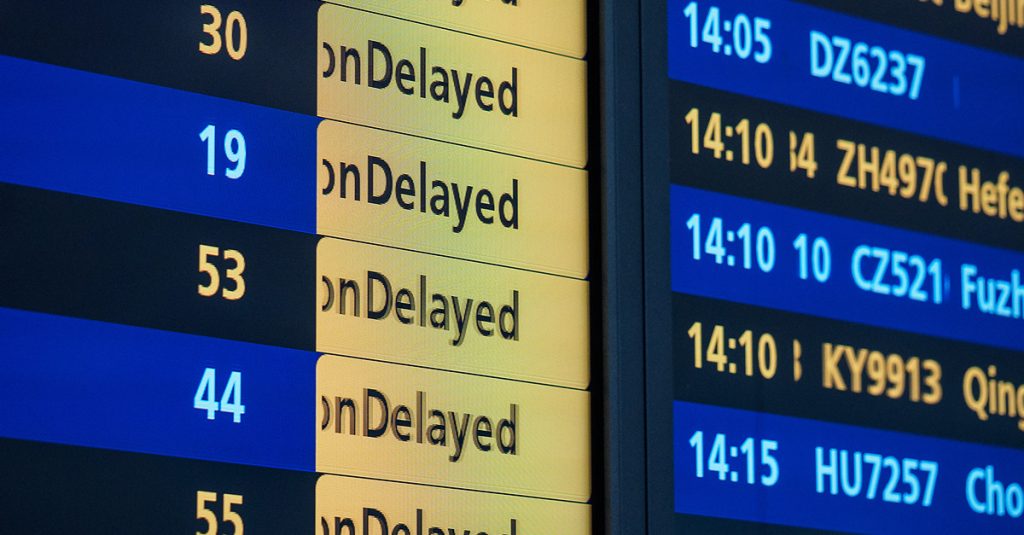In light of the anticipated increase in travel over the August Bank Holiday, the Civil Aviation Authority (CAA) has reinforced the importance of understanding passenger rights. With historical disruptions still fresh in memory, the CAA’s initiative is timely and crucial.
As the travel sector edges towards pre-pandemic levels, the CAA has issued a reminder about entitlements for delayed or cancelled flights. This guidance is particularly relevant ahead of the year’s busiest travel days, ensuring passengers are well-informed and prepared for potential disruptions.
Passenger Rights and Responsibilities
Understanding passenger rights is essential during peak travel periods. The CAA urges passengers to refresh their knowledge of these rights, especially as travel volumes rise. This includes knowing what support is available if flights face delays or cancellations.
Passengers are advised to book special assistance in advance if required. With over 79 million passengers in UK airports in the second quarter, preparation is key. Familiarity with baggage and liquid restrictions, unchanged at 100mls for cabin bags, is also crucial for a seamless journey.
The Role of Airlines and Airports
Anna Bowles, CAA consumer head, emphasised the obligations of airlines and airports in supporting passengers. In cases of delays, provisions like food, drink, or accommodation arrangements are mandatory. These services are part of the legal responsibilities carriers must uphold.
Bowles stated, “It is important airports and airlines deliver on their legal obligations to passengers when things go wrong.” Her emphasis on accountability seeks to ensure a standard of care is maintained, even during unpredictable disruptions.
Ensuring Financial Protection
CAA stresses the significance of securing Atol protection for financial security during travel. Booking an Atol-protected holiday ensures passengers receive support if their travel company ceases operations.
The recommendation to use credit cards adds an extra layer of financial safeguard. Additionally, travellers are encouraged to conduct thorough research on travel companies, particularly unfamiliar ones, ensuring reliability and value.
August Bank Holiday Travel Projections
The August Bank Holiday is projected to be the busiest travel period of the year. With departure numbers nearly reaching pre-pandemic levels, preparation is vital. Today’s 12,302 scheduled flights exemplify the scale of operations underway.
Major UK airports like Heathrow and Gatwick are set to manage substantial traffic. Popular destinations such as Dublin and Amsterdam indicate a strong demand for international travel. Consequently, the need for awareness and planning cannot be overstated.
Social Media and Information Dissemination
The CAA has turned to social media to disseminate vital information on passenger rights, releasing engaging content to aid understanding. This strategy ensures that passengers are informed in a timely and accessible manner.
CAA’s video campaign serves as a practical guide, offering essential tips for travellers. This approach enhances visibility and comprehension, equipping passengers with the necessary knowledge for a stress-free travel experience.
As flights surge, information availability remains a priority. Platforms like Twitter and Facebook are instrumental in reaching broad audiences, especially during peak travel times.
Impact of Historical Disruptions
Last year’s August shutdown of the UK’s air traffic control system resulted in notable disruptions, affecting 700,000 passengers. The CAA highlights these disruptions to stress the importance of understanding rights amidst potential delays.
With 160,000 flight delays and 8,000 cancellations documented last summer, the CAA’s reminder is underscored with a sense of urgency. Understanding one’s entitlements is critical in navigating these challenges effectively.
Being informed about one’s rights minimizes frustration and empowers passengers when facing unexpected disruptions. The CAA’s proactive approach aims to mitigate potential travel chaos by enhancing traveller preparedness.
Planning for Special Assistance
Travellers requiring special assistance are urged to notify airlines early and arrive at airports ahead of time. This proactive approach facilitates smoother arrangements and better support services.
Airport staff at accessibility points provide essential help for those in need. The CAA’s guidance in planning ahead is intended to ease travel for passengers requiring additional support.
Early communication with airlines is crucial in ensuring special needs are met without hassle. This preparation fosters a more inclusive and accommodating travel environment for all passengers.
The CAA’s emphasis on passenger rights and airline responsibilities ensures better preparation for the anticipated travel surge. As travel demand increases, understanding entitlements and financial protections is vital. With proactive strategies and informed guidance, passengers can navigate their journeys with confidence and peace of mind.

